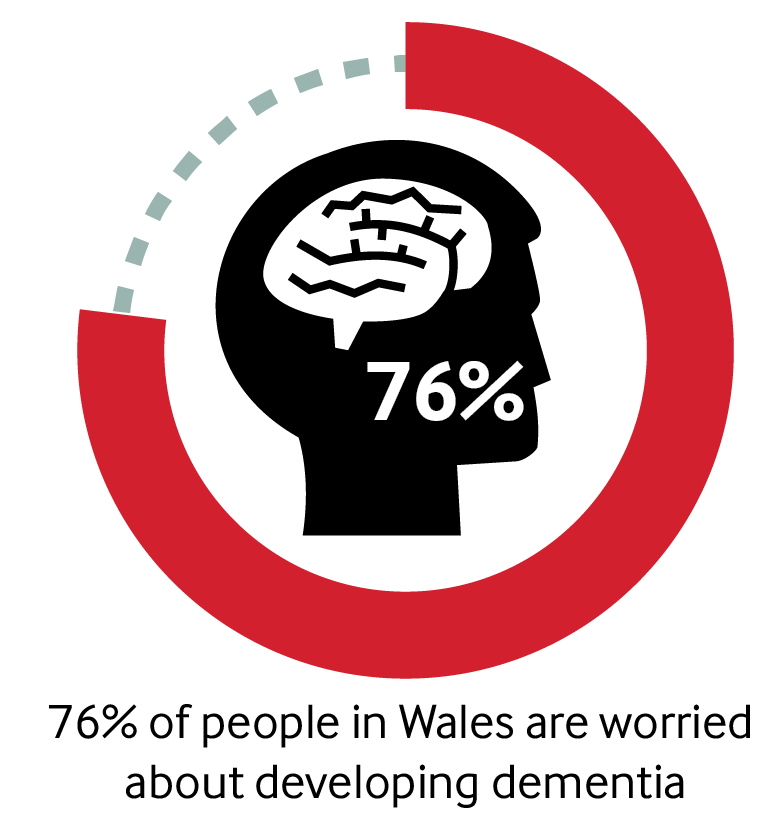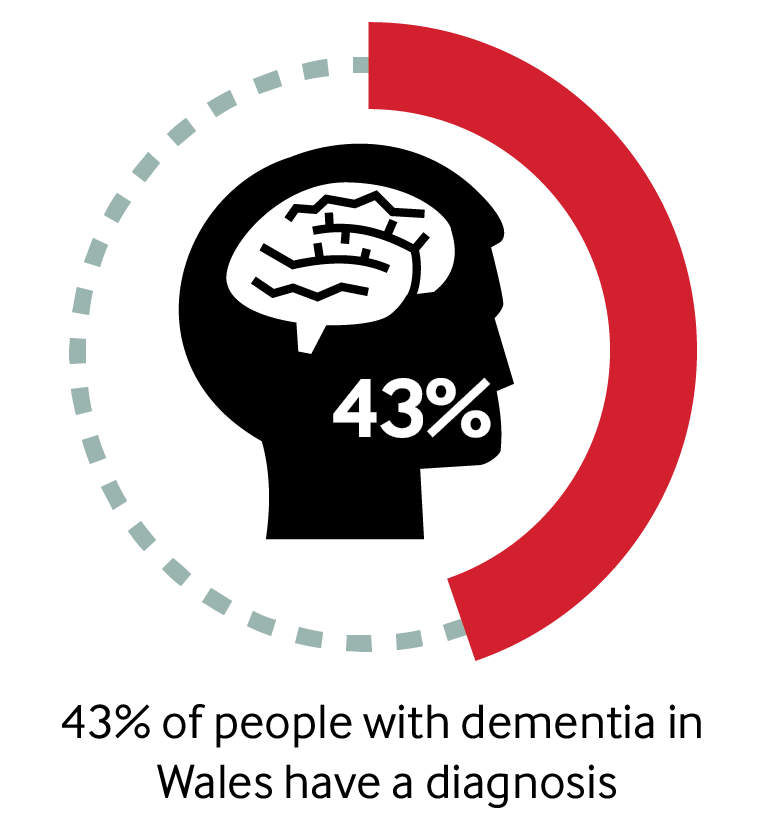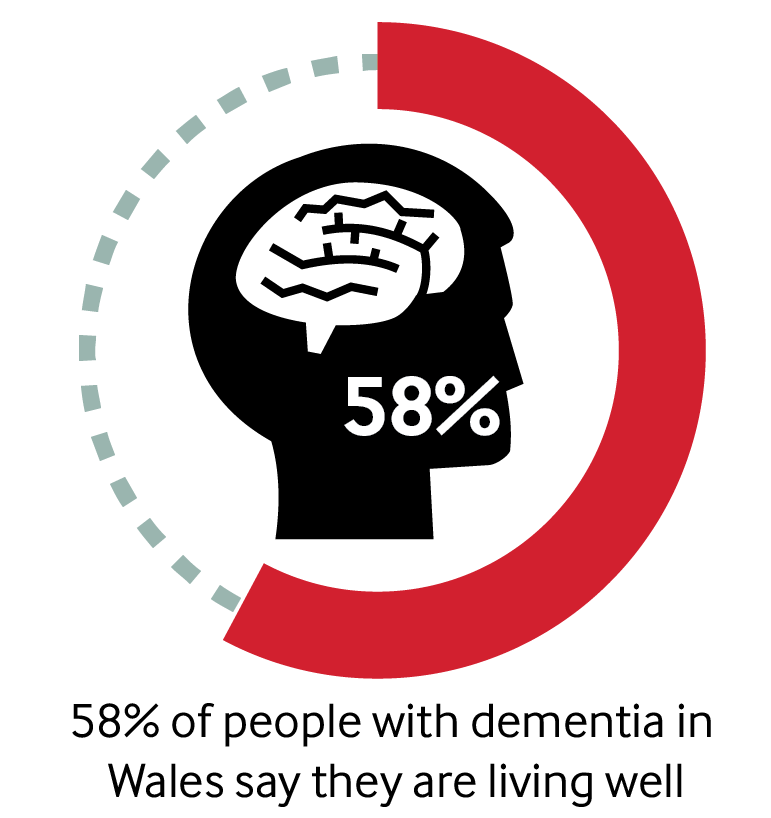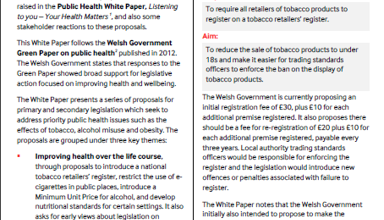Article by Amy Clifton, National Assembly for Wales Research Service
This article is taken from ‘Key issues for the Fifth Assembly’, published on 12 May 2016.
Dementia is the top health concern in Wales. Despite having the highest proportion of older people in the UK, we have the lowest rate of dementia diagnosis. Will a new dementia strategy deliver the step-change that Wales needs?
Given that the Welsh population is ageing, and that we already have the highest proportion of older people in the UK, it is little wonder that many people are worried about dementia. A recent Welsh Government survey shows that dementia tops the list of health concerns in Wales: 76% of the population are worried about developing it in later life.
A global public health priority
‘The overwhelming number of people whose lives are altered by dementia, combined with the staggering economic burden on families and nations, makes dementia a public health priority’.
- Dr Margaret Chan, Director-General, World Health Organisation
Scale of the issue
Dementia has a dramatic financial and human impact on Wales. It costs the Welsh economy an estimated £1.4 billion per year; an annual average of £31,300 for each person with dementia. This includes costs to the NHS and social services, although research shows that people with dementia, carers and their families currently bear around two-thirds of the costs themselves. This amounts to £298 million for private social care, and £622 million by unpaid carers. One in five people in Wales has a close family member or friend with dementia. Approximately 45,000 people in Wales are currently living with  dementia, and this figure is predicted to rise steadily over the next decades. The previous Welsh Government estimated a 31% increase in the number of people with dementia from 2011 to 2021, with as much as a 44% increase in some rural areas. Alzheimer’s Society estimates that by 2021 there will be over 55,000 people living with dementia in Wales, rising to over 100, 000 by 2055.
dementia, and this figure is predicted to rise steadily over the next decades. The previous Welsh Government estimated a 31% increase in the number of people with dementia from 2011 to 2021, with as much as a 44% increase in some rural areas. Alzheimer’s Society estimates that by 2021 there will be over 55,000 people living with dementia in Wales, rising to over 100, 000 by 2055.
Diagnosis rates and access to support
Wales has the lowest rate of dementia diagnosis of all the UK nations, with little improvement in recent years. The latest figures (2015) show that only 43.4% of people living with dementia in Wales have a diagnosis. Diagnosis rates vary across Wales, from 49.5% in Cardiff and the Vale University Health Board, to 37.2% in Hywel Dda University Health Board. Alzheimer’s Society states that people living with dementia in Wales are less likely to receive a diagnosis and less likely to have access to post-diagnosis support than the rest of the UK. Its research found that only 58% of people with dementia say they are living well.
Action taken so far
The Welsh Government published the National Dementia Vision for Wales in 2011. In April 2015 the Welsh Government announced its ambition for Wales to become a ‘dementia friendly nation’. It set a target to increase diagnosis rates to 50%, and announced £1m of funding, which included money  for new care workers and primary care link nurses. In February 2016 the Welsh Government launched the ACT NOW to reduce your risk of developing dementia campaign, to raise public awareness of the steps people can take to reduce their risk. It suggests that healthier living may reduce dementia risk by 60%. The last Welsh Government also consulted on a new three-year Together for Mental Health Delivery Plan, which highlights dementia as a key priority. The Delivery Plan includes a commitment to produce a dementia strategic plan by December 2016.
for new care workers and primary care link nurses. In February 2016 the Welsh Government launched the ACT NOW to reduce your risk of developing dementia campaign, to raise public awareness of the steps people can take to reduce their risk. It suggests that healthier living may reduce dementia risk by 60%. The last Welsh Government also consulted on a new three-year Together for Mental Health Delivery Plan, which highlights dementia as a key priority. The Delivery Plan includes a commitment to produce a dementia strategic plan by December 2016.
Calls for further action
Alzheimer’s Society has stated that progress on delivering the current Dementia Vision has been hampered by a lack of resourcing, monitoring and ownership of the action plans. The charity welcomed the recent commitment to a dementia strategic plan, stating there is an urgent need for a new strategy that has clear lines of accountability and adequate resourcing. However, it has highlighted areas in which it would like the Welsh Government to go further, claiming that a diagnosis target of 50% does not go far enough. It wants to see a commitment to increase diagnosis to at least 75% in each health board by 2021, with the health boards committing to an annual minimum increase of 5% in the diagnosis rate for their area. Alzheimer’s Society also points out that the plans to increase the number of dementia support workers would only equate to around 30 posts, whereas it believes over 300 support workers are needed. It wants to see access to a dementia adviser or similar professional available for all people diagnosed with dementia, to ensure they receive meaningful post-diagnosis support. The Older People’s Commissioner for Wales published Dementia: More than just Memory Loss in 2016, capturing the voices of people living with dementia and their carers from across Wales. The report sets out a number of further actions that could be delivered. These include better dementia  training for health and care staff to ensure they have sufficient knowledge and understanding of the condition; and greater post-diagnosis support, including a single point of contact for information and advice. The Commissioner has written to public service leaders across Wales, seeking assurances that they will deliver the change required. The Commissioner stated that she will undertake follow-up work to monitor progress. Will the next Welsh Government take the previous commitment forward and produce a new dementia strategy by December 2016? Will the plan deliver improvements in diagnosis rates and access to support across Wales? These are some of the key questions Assembly Members in the Fifth Assembly may wish to ask.
training for health and care staff to ensure they have sufficient knowledge and understanding of the condition; and greater post-diagnosis support, including a single point of contact for information and advice. The Commissioner has written to public service leaders across Wales, seeking assurances that they will deliver the change required. The Commissioner stated that she will undertake follow-up work to monitor progress. Will the next Welsh Government take the previous commitment forward and produce a new dementia strategy by December 2016? Will the plan deliver improvements in diagnosis rates and access to support across Wales? These are some of the key questions Assembly Members in the Fifth Assembly may wish to ask.
Key sources
- Alzheimer’s Society, Diagnose or disempower: Receiving a diagnosis of dementia in Wales (2015)
- Alzheimer’s Society, Dementia 2014 Wales report (2014)
- Alzheimer’s Society, Dementia 2014: Opportunity for change - Wales summary (2014)
- Alzheimer’s Society, The Hidden cost of dementia in Wales (2015)
- Alzheimer’s Society, Wales Diagnosis rates 2015 (2015)
- Older People’s Commissioner for Wales, Dementia: More than just memory loss (2016)
- Welsh Government, Consultation on Together for Mental Health – Delivery Plan 2016 – 2019 (2016)
- Welsh Government, National Dementia Vision for Wales (2011)
- World Health Organisation, Dementia: a public health priority (2012)






